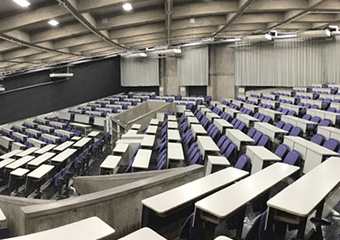 Core Institution
Core Institution
Institute of Mathematics for Industry (IMI), Kyushu University
744 Motooka, Nishi-ku, Fukuoka 819-0395, JAPAN
https://www.imi.kyushu-u.ac.jp/en/
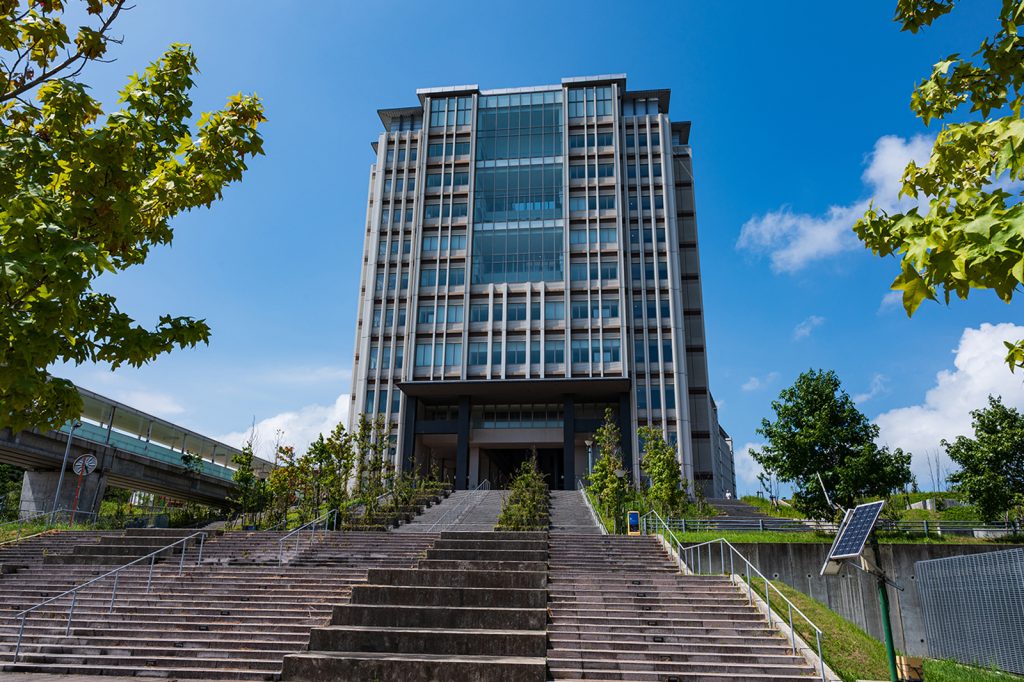
In today’s functionally advanced society, mathematics is like a light in the darkness that never goes out. Mathematics is actually the foundation of almost all advanced technologies driving modern society such as information security, network systems, CT scans, MRIs, and other medical technologies, airplane and automobile development technologies, smelting-furnace and nuclear-reactor control technologies, scheduling in the transport and distribution sectors, and finance and insurance support systems, as well as technologies for resource exploration, disaster prediction, and even entertainment. Today, there is a need like never before in many scientific and technical fields for research personnel skillful in mathematics and the mathematical sciences, and there is no doubt that this need will continue to grow in the years to come on an international scale.
To meet this global demand, the Institute of Mathematics for Industry (IMI) at Kyushu University was founded on April 1, 2011 as the first institute in Asia for industrial mathematics based on diverse fields of mathematics research. IMI was also authorized as the MEXT Joint Usage/Research Center entitled “Center for Collaborative Research in Advanced and Fundamental Mathematics for Industry” from the Ministry of Education, Culture, Sports, Science and Technology on April 1, 2013.
Mathematics for Industry (MI) is a new research area that will serve as a hub for creating future technologies. It was born with the aim of responding to the needs of the industrial sector by reorganizing and merging pure and applied mathematics into flexible and versatile forms. The IMI is involved in the following activities to promote MI.
**Joint research in response to the needs of industry inside and outside Japan and various types of mathematics research in support of joint projects
**Organization of joint researches as the MEXT Joint Usage/Research Center
**Education and training of junior researchers. In particular, producing future leaders in the global situation.
**Organization of workshops and international conferences
**Organization of study groups (training camps for solving outstanding problems in industry and other fields)
**Organization of joint seminars between academia and industry and other fields
**International cooperation with particular focus on Asia-Pacific area
**Technical consultation
**Tutorials on mathematical key technologies
**Publication of International Journal of Mathematics for Industry (IJMI), proceedings of international conferences, Lecture Note Series and Preprint Series
**Matching and managing internships (long-term doctoral programs, medium-term master’s programs)
**Education from the viewpoint of mathematics beneficial to society (Graduate School of Mathematics, Department of Mathematics of the Faculty of Science) and awareness campaigns
 Cooperating Institution
Cooperating Institution
Mathematical Science Center for Co-creative Society and Tohoku Forum for Creativity
2-1-1, Katahira, Aoba-ku, Sendai, 980-8577, Japan
https://www.mccs.tohoku.ac.jp/index-e.html
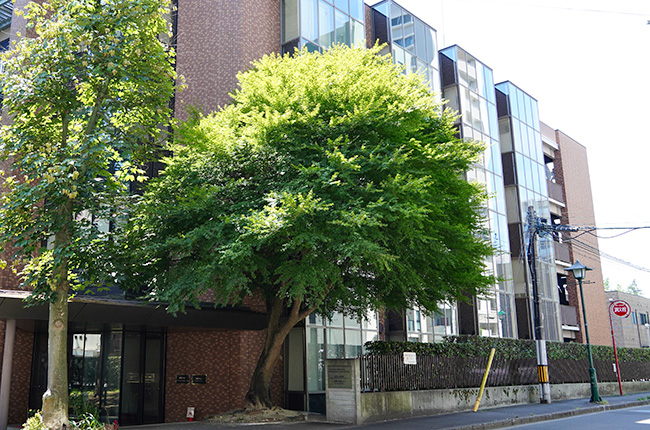
Mathematical Science Center for Co-creative Society (MathCCS) enhances collaboration among mathematical sciences and other disciplines, including industries and several social sectors. To achieve our mission, the Center devices and organizes various collaborative projects, promotes joint research with corporations, and supports international exchanges of young researchers and students of mathematics who are interested in tackling real-world problems.
Tohoku Forum for Creativity (TFC) supports the creation of new knowledge that can improve the future of our societies. To produce new knowledge, it is necessary to prepare opportunities for collaboration in which various researchers can interact, as well as to cultivate emerging talent who can demonstrate their creativity in cooperation with others. The TFC also promotes the sharing of knowledge by providing opportunities for intellectual exchange between researchers and the general public, including the children who will lead society in the future, through the planning and hosting of public events.
 Partner Institutions (Alphabetical Order)
Partner Institutions (Alphabetical Order)
Graduate School of Integrated Sciences for Life, Hiroshima University
1-4-4 Kagamiyama, Higashi-Hiroshima City, Hiroshima, 739-8528, Japan
https://www.hiroshima-u.ac.jp/en/ilife
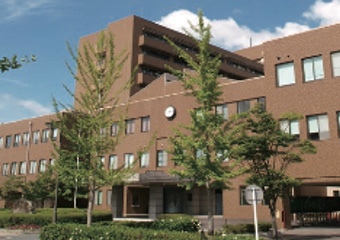
Research Center of Mathematics for Social Creativity,
Research Institute for Electronic Science, Hokkaido University
Research Center of Mathematics for Social Creativity, Hokkaido University, Kita 12, Nishi 7, Kita-ku, Sapporo, Hokkaido 060-0812
https://mmc01.es.hokudai.ac.jp/msc/en/
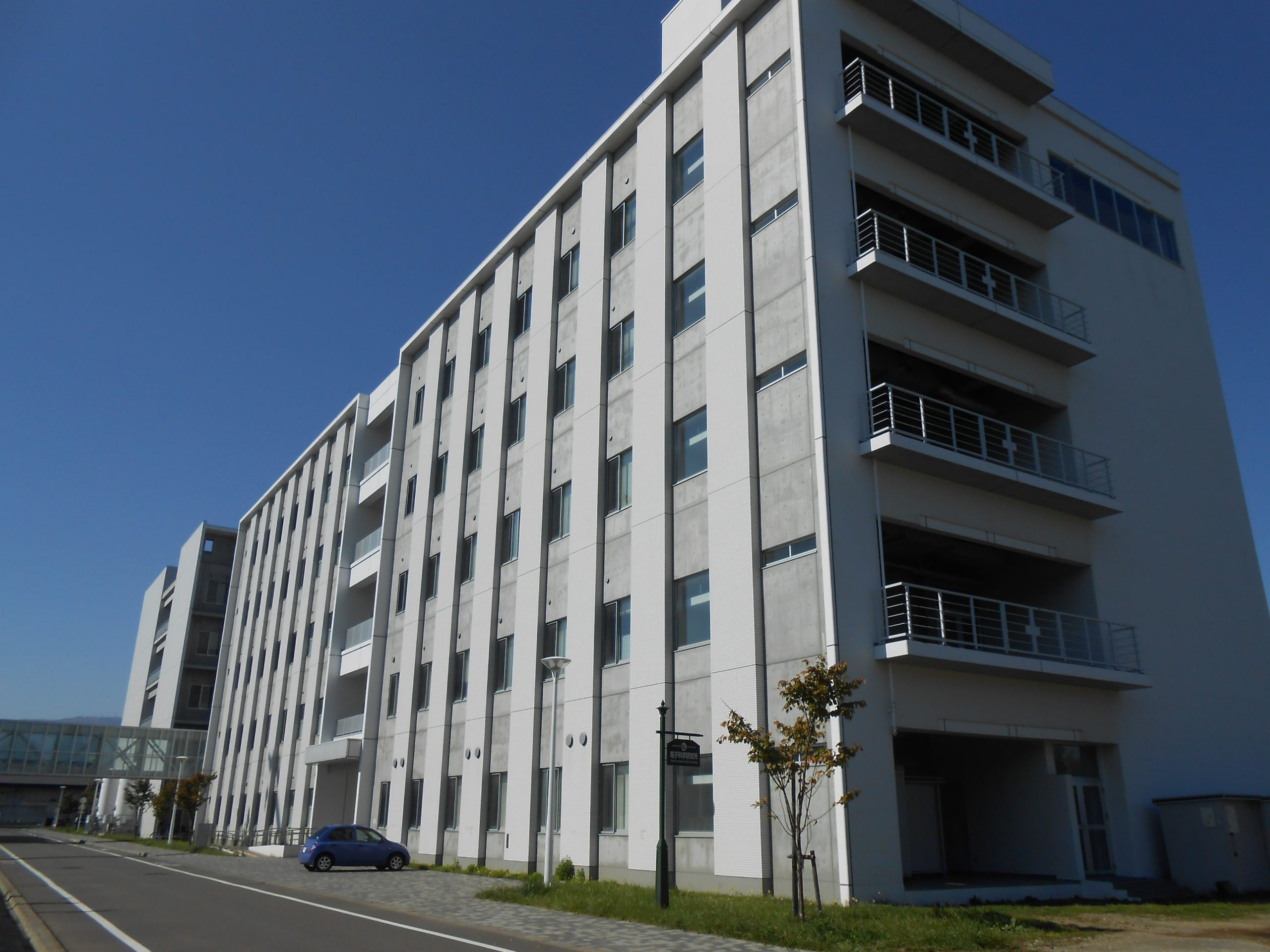
This cooperative centre promotes advanced education, research, and high-level industry-academia collaboration, in strong collaboration with the Department of Mathematics at Hokkaido University. We are particularly focused on nurturing the next generation of leaders who have a global perspective and the ability to identify problems in a multidisciplinary sense.
Mathematical sciences have a unique capacity to respond to unsolved social problems with its comprehensive ability to dynamically develop leading research in university and industry settings.
By combining conclusive knowledge with hypotheses from the theoretical sciences, we will create objective philosophies based on experimental results obtained through new research methods.
We hold joint seminars and special lectures to provide the opportunity for discussions and collaborative research projects – which we call the virtual Open Facility for Knowledge.
Department of Mathematics, Faculty of Science and Technology, Keio University
3-14-1 Hiyoshi, Kohoku-ku, Yokohama, 2238522 Japan
https://www.math.keio.ac.jp/en/
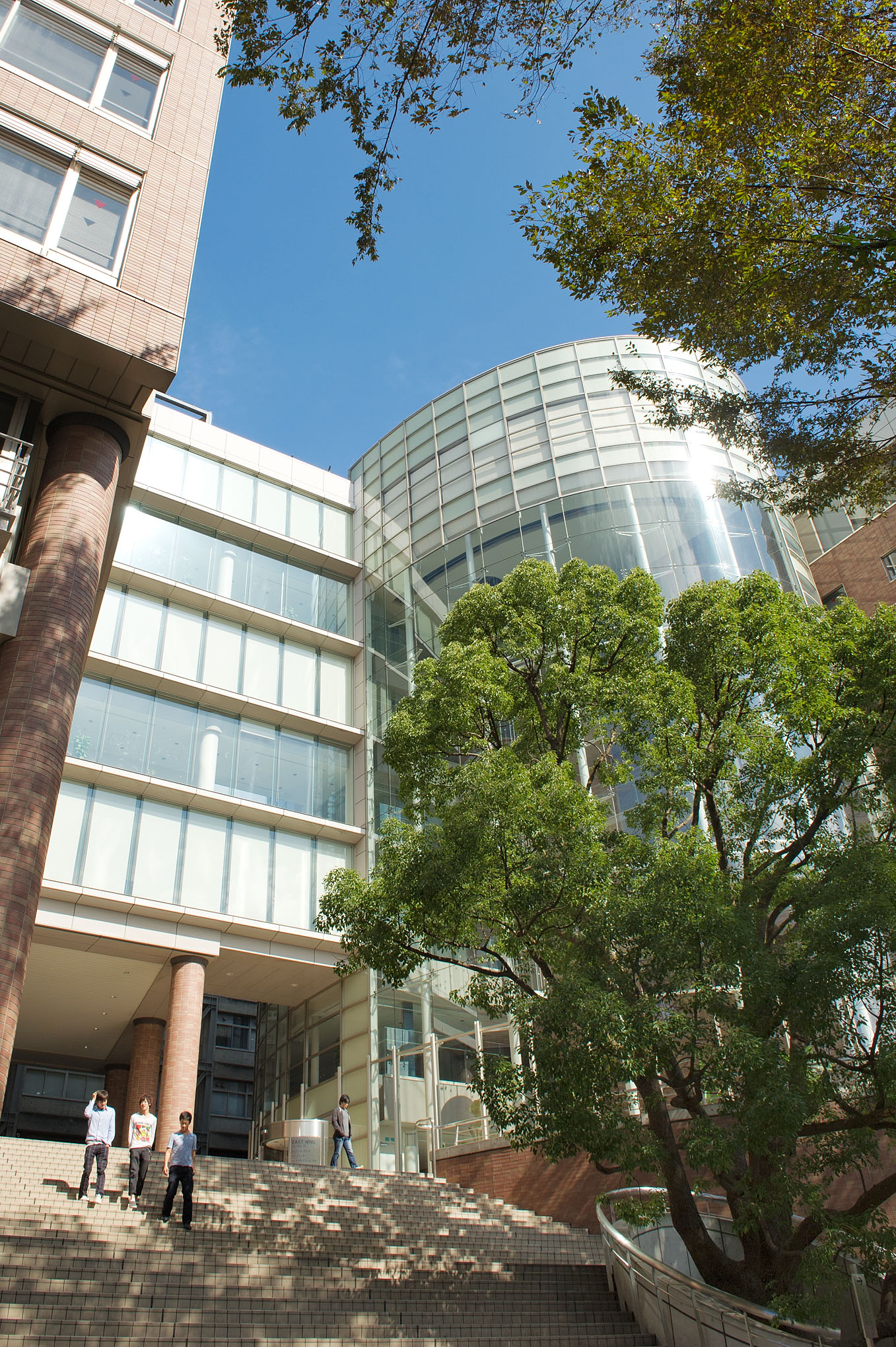
Department of Mathematics is one of the eleven departments of Faculty of Science and Technology. In terms of mathematical science, our research covers a wide range of pure mathematics, applied mathematics and statistics, such as analytical number theory, arithmetic geometry, Iwasawa theory, theory of differential equations, theory of dynamical systems, probability theory, statistical mechanics, mathematical finance, discrete groups, operator algebras, differential topology, graph theory, optimization, algorithm, statistics, Bayesian inference, medical statistics, financial engineering, data science, .etc. In the recent development of mathematical science, it is often discovered that a purely mathematical theory has a deep connection to physics or/and engineering; it is also the case that attempts to understand phenomena in the real world such as chaotic behaviors, fractal structures and so on lead to new theories in mathematics. Therefore, it is more and more important to investigate various problems from viewpoints of mathematical science. Respecting the long history of pure mathematics, we contribute to development of mathematical science.
Research Institute for Mathematical Sciences, Kyoto University
Kitashirakawa Oiwake-cho, Sakyo-ku, Kyoto 606-8502
https://www.kurims.kyoto-u.ac.jp/en/index.html
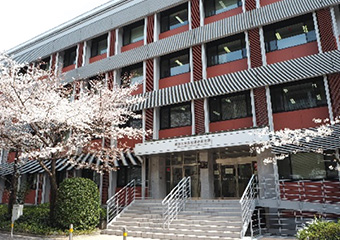
Since its establishment in 1963, the Research Institute for Mathematical Sciences (RIMS) has served the purpose of accelerating research in the mathematical sciences. In November 2018, RIMS was certified as an International Joint Usage / Research Center by the Ministry of Education, Culture, Sports, Science and Technology (MEXT), making it an international hub for other research institutes inside and outside Japan, with the aim of leading international joint research activities and strengthening the research ability of domestic researchers.
RIMS is organized into three major divisions (Fundamental Mathematics, Infinite Analysis, and Applied Mathematics), as well as a Computer Laboratory, making it a flexible organization. In addition, RIMS has established the “International Research Center for Next-Generation Geometry” to strengthen research in this area, the “Center for Research Interaction in Mathematical Sciences” to promote international research collaboration, and the “Liaison Center in Mathematics” to promote collaborative research with researchers from a wide range of scientific fields.
RIMS has had a graduate school since 1970, and currently accepts 10 Master students and 10 PhD students every year. Under the guidance of outstanding faculty members, students can learn contemporary mathematics in an environment where leading researchers visit from all over the world and collaborate on a daily basis.
The three activities of RIMS above are a trinity that strengthens each other, which is extremely important for the development of the institute. The role of the institute is to provide a high-level research environment where researchers can discuss with each other actively and think deeply about mathematics.
Graduate School of Science, the Department of Mathematics
Kirashirakawa Oiwake-cho, Sakyo-ku, Kyoto 606-8502
https://www.math.kyoto-u.ac.jp/en
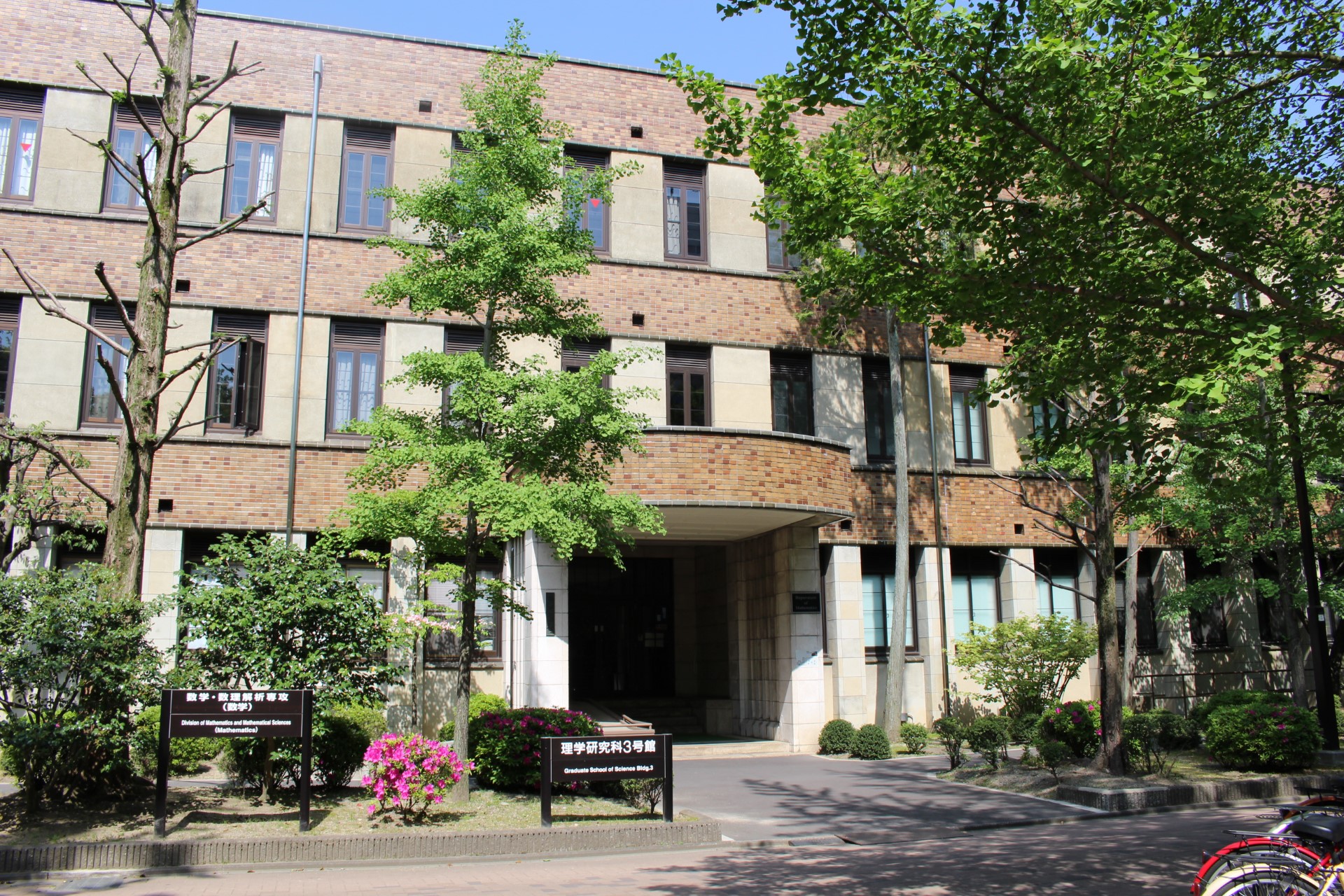
The Department of Mathematics, Kyoto University originated with two research units in the Division of Science in the College of Science and Engineering, founded when Kyoto Imperial University was established in 1897. In 1908, the Division of Science was divided, and the Division of Mathematics was established. After World War II, the Department of Mathematics was established in the graduate school under the new educational system in 1953 and top-level personnel were invited. In 1994, it was reorganized into the Graduate School of Science, the Department of Mathematics. Since then, the department has been responsible for mathematics courses in the Faculty of Science and Liberal Arts and General Education Courses.
In our department, the faculty members in Applied Mathematics play a central role in an interdisciplinary activity called the “Math Clinic”. It is like a general practitioner in mathematics, such as consulting with researchers having mathematical problems as a patient, showing solutions, and introducing mathematicians in suitable fields.
Meiji Institute for Advanced Study of Mathematical Sciences
4-21-1 Nakano, Nakano-ku, Tokyo 164-8525
https://www.mims.meiji.ac.jp/index-e.html
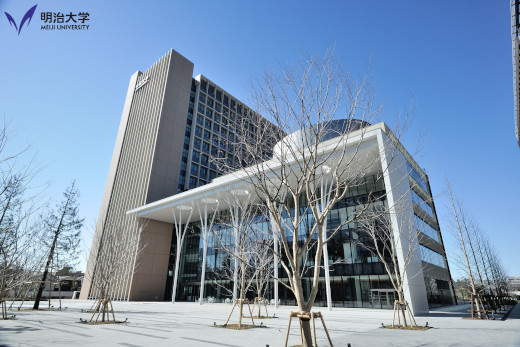
Meiji Institute for Advanced Study of Mathematical Sciences (MIMS) was established in 2007 and our “Center for Mathematical Modeling and Applications (CMMA)” was approved as Joint Usage/Research Center by Ministry of Education, Culture, Sports, Science and Technology (MEXT) in April of 2014.
The mission of MIMS is to develop mathematical sciences to deepen our understanding of various phenomena in society and nature. We also focus on returning our research results to society and fostering young researchers through several programs. With these activities, we aim to form a leading international research center.
MIMS Research divisions:
(1) Fundamental Mathematics Division
(2) Mathematical Modeling and Analysis Division
(3) Mathematical Education Division
(4) Art-and-Science Integration Division
(5) Integrated Division of Mathematical Modeling and Life Sciences
(6) Advanced Mathematical Science Division
Musashino Center of Mathematical Engineering (MCME)
3-3-3 Ariake, Koto-ku, Tokyo 135-8181
https://musashino-u.j-server.com/LUCAIMSSNU/ns/tl.cgi/
https://www.musashino-u.ac.jp/research/laboratory/mathematical_engineering/index.html?SLANG=ja&TLANG=en&XMODE=0&XPARAM=q,&XCHARSET=utf-8&XPORG=,&XJSID=0
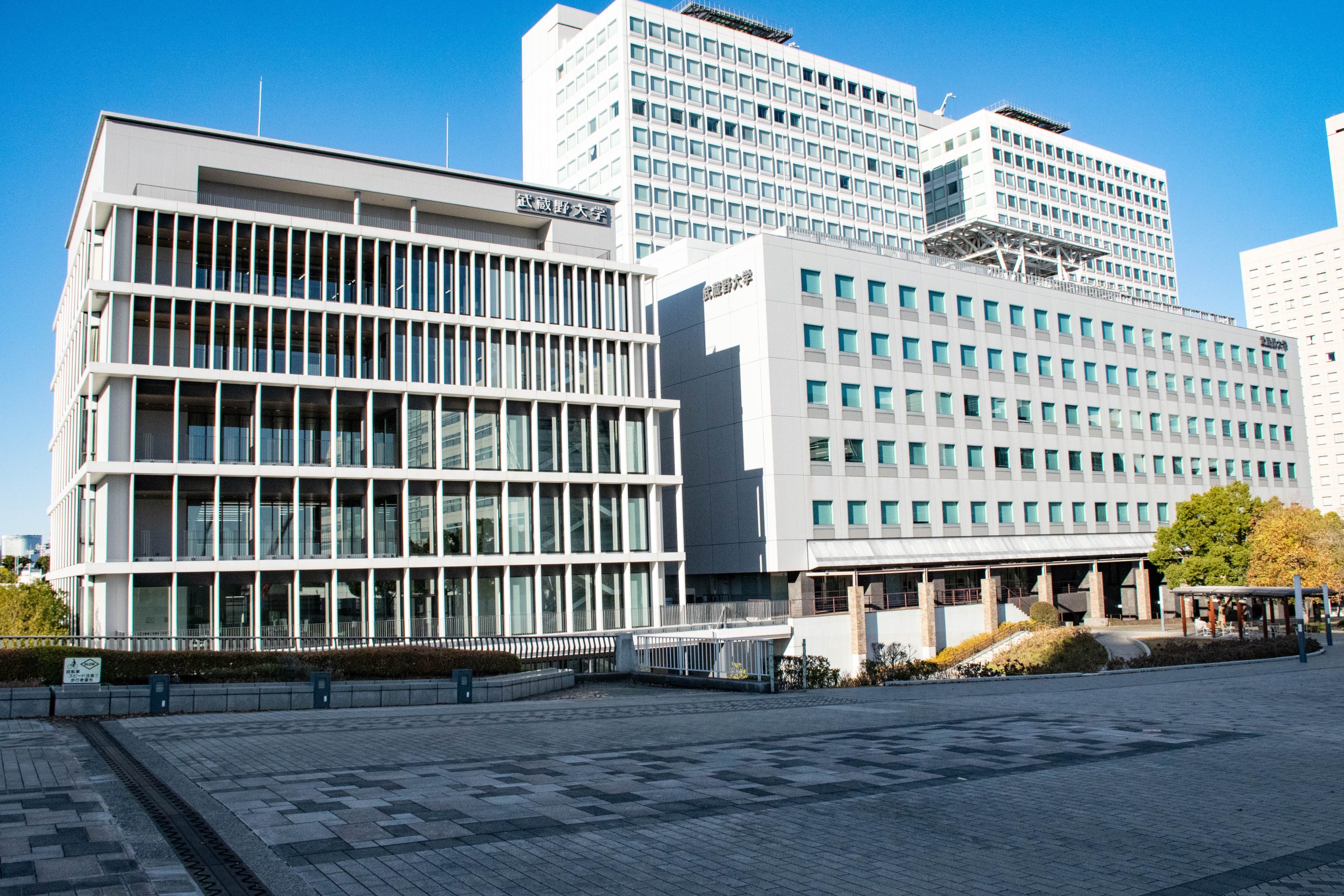
In April 2015, the Department of Mathematical Engineering, Faculty of Engineering, Musashino University was opened.
According to the prospectus, the Department of Mathematical Engineering aims to “develop human resources who can acquire specialized skills in mathematical engineering and proactively participate in building a sustainable society, such as those who can model and understand natural and social phenomena and apply them to system design, and those who can analyze the correlation between accumulated data to grasp the essence of a problem and then solve it. The objective is to develop human resources (data scientists) who can solve problems by analyzing correlations among accumulated data and grasping the essence of the problem.
To support the education of the Department of Mathematical Engineering from the research side, the Musashino Center of Mathematical Engineering (MCME) was established as a research center at the same time as the department was opened.
Mathematical engineering today is expanding its collaboration with fields closely related to society, such as life information science, environmental physics, congestion science, and advanced medical information analysis. In addition, today’s society requires personnel who have acquired a wider range of specialized and advanced knowledge and skills than ever before, transcending the boundaries of multiple research fields, such as system engineers and financial analysts who have studied mathematical engineering.
For this reason, MCME has assigned faculty members to support students with specialized computer knowledge and skills, and by providing research support, to send out into society the human resources that will be in demand in the future.
In addition to fostering excellent human resources with specialized knowledge and advanced skills and developing research related to mathematical engineering, MCME also collects research information on various information, findings, and knowledge related to mathematical engineering and other fields from inside and outside the university, further develops research based on that information, and disseminates information. It also aims to create a cycle of mathematical engineering research by actively conducting research and disseminating information based on this information.
Furthermore, by taking advantage of its location in Ariake, on the shore of Tokyo Bay, MCME aims to create a new environment in which industry, academia, and government are fused together, not only in academic fields, and to disseminate information in cooperation with companies and other entities attracted to the waterfront subcenter, thereby becoming a center of mathematical engineering research not only in Japan, but also in the world.
Graduate School of Mathematics, Nagoya University
Furocho, Chikusaku, Nagoya, Japan 464-8602
https://www.math.nagoya-u.ac.jp/en/index.html
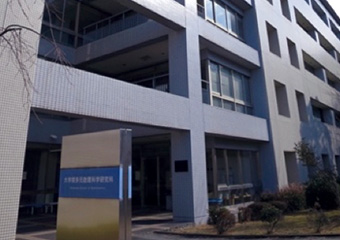
The Graduate School of Mathematics at Nagoya University was established in April 1995 as an independent graduate school of mathematics and mathematical sciences, and its diverse faculty has been engaged in extensive education and research. One of the distinctive features of this graduate school’s education is the implementation of “student projects,” introduced to foster student initiative, and the operation of “Cafe David,” an open office hour. Additionally, besides the regular mathematics lectures, numerous collaborative lectures with society, taught by instructors from various professions, are offered to broaden students’ connections with society and enhance their career paths.
These initiatives are made possible through collaboration with the Nagoya University Alumni Association of Mathematical Sciences, comprised of alumni and faculty members of the Nagoya University Department of Mathematics. To strengthen this collaboration, in the 2023 academic year, an Industry-Academia Collaboration Office and a coordinating coordinator were newly appointed. Collaborative research with companies associated with alumni has also begun. We plan to further advance such developments in the future.
Osaka Central Advanced Mathematical Institute
3-3-138 Sugimoto, Sumiyoshi-ku Osaka 558-8585
https://www.omu.ac.jp/orp/ocami-en/
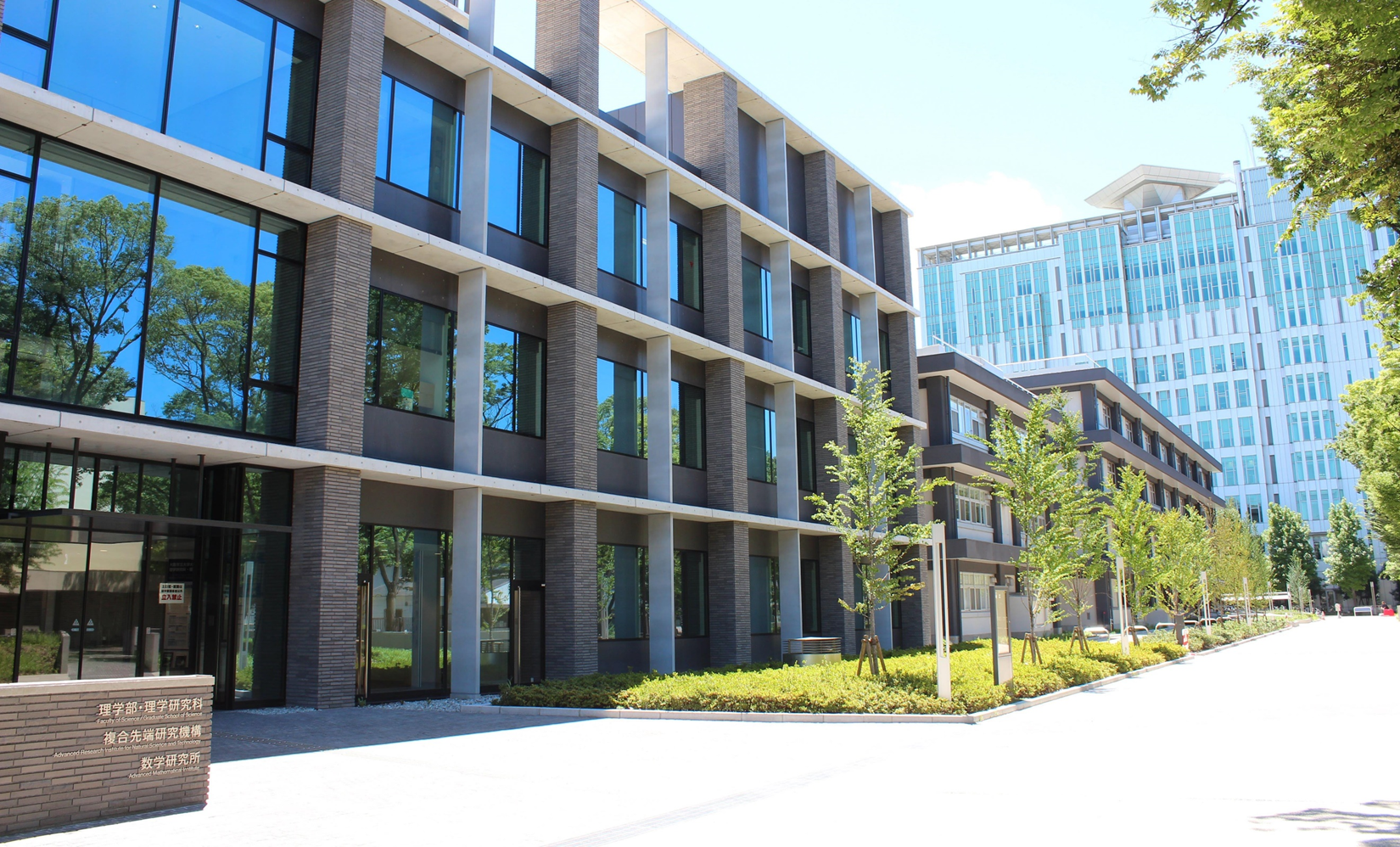
Osaka City Advanced Mathematical Institute (OCAMI) was established in September 2003 as a result of the adoption of the 21st Century COE Program “Constitution of wide-angle mathematical basis focused on knots”. Even after the program ended, the institute has continued to serve as an international education and research base that encourages young researchers. Adding theoretical physics to mathematics as the core target of the activity, faculty members, specially appointed professors, specially appointed research assistants, and special researchers have been at the center of research exchanges and educational activities.
From the 2018 academic year, OCAMI became an affiliated research institute of Osaka City University, developing broader research and educational activities. In April 2019, OCAMI has been authorized as a MEXT Joint Usage/Research Center on Mathematics and Theoretical Physics. Starting from the 2022 academic year, due to the university integration, the Institute added researchers from Osaka Prefecture University to its members and changed its name to the Osaka Central Advanced Mathematical Institute (OCAMI). Furthermore, from the 2023 academic year, it is adopted for the functional enhancement support by MEXT. New initiatives have been launched to raise and expand the level of research and education, including the establishment of the Mathematics and Mathematical Sciences Collaboration Division, international calls for joint usage and research, international recruitment of Mathematical Institute members, and co-sponsoring the Japan Mathematical Contest.
Osaka University
Center for Mathematical Modeling and Data Science, Machikaneyamacho 1-3, Toyonakashi, 560-8531,
https://www-mmds.sigmath.es.osaka-u.ac.jp/en/
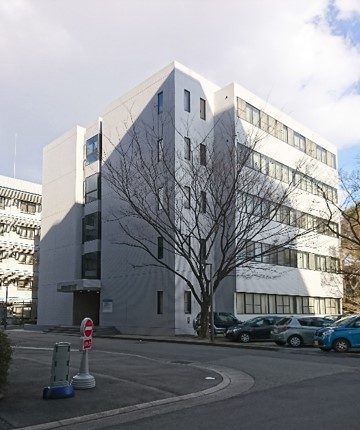
Center for Mathematical Modeling and Data Science (MMDS), the University of Osaka (U of Osaka), is engaged in educational programs on mathematical science and data science and offers research products to educational, academic, and industrial communities in Osaka, Japan, and the World. Three units of data science, mathematical science, and information science and the managing office belong to MMDS, where a number of members are engaged in educational and research activities. Around 40 members in U of Osaka have additional posts in MMDS to offer sub-courses for master students. Five graduate schools (economy, science, engineering, engineering science, information) cooperate MMDS in educational and research activities. Besides, 40 labs, mostly in research institutes of U of Osaka join the research programs for PhD students and working members of society. MMDS has been engaged in merged studies on bio-science, engineering, and social sciences, using study groups as entrance, and also in the studies of the problem in industry. It now accepts several joint researches and manages educational programs to several companies. MMDS develops mathematical methods and tools in several fields such as computational biology, applied robotics, computer-based psychology, mathematical engineering, and financial engineering, to cooperate MfIP project.
RIKEN Interdisciplinary Theoretical and Mathematical Sciences Program (iTHEMS)
2-1 Hirosawa, Wako, Saitama 351-0198 Japan
https://ithems.riken.jp/en
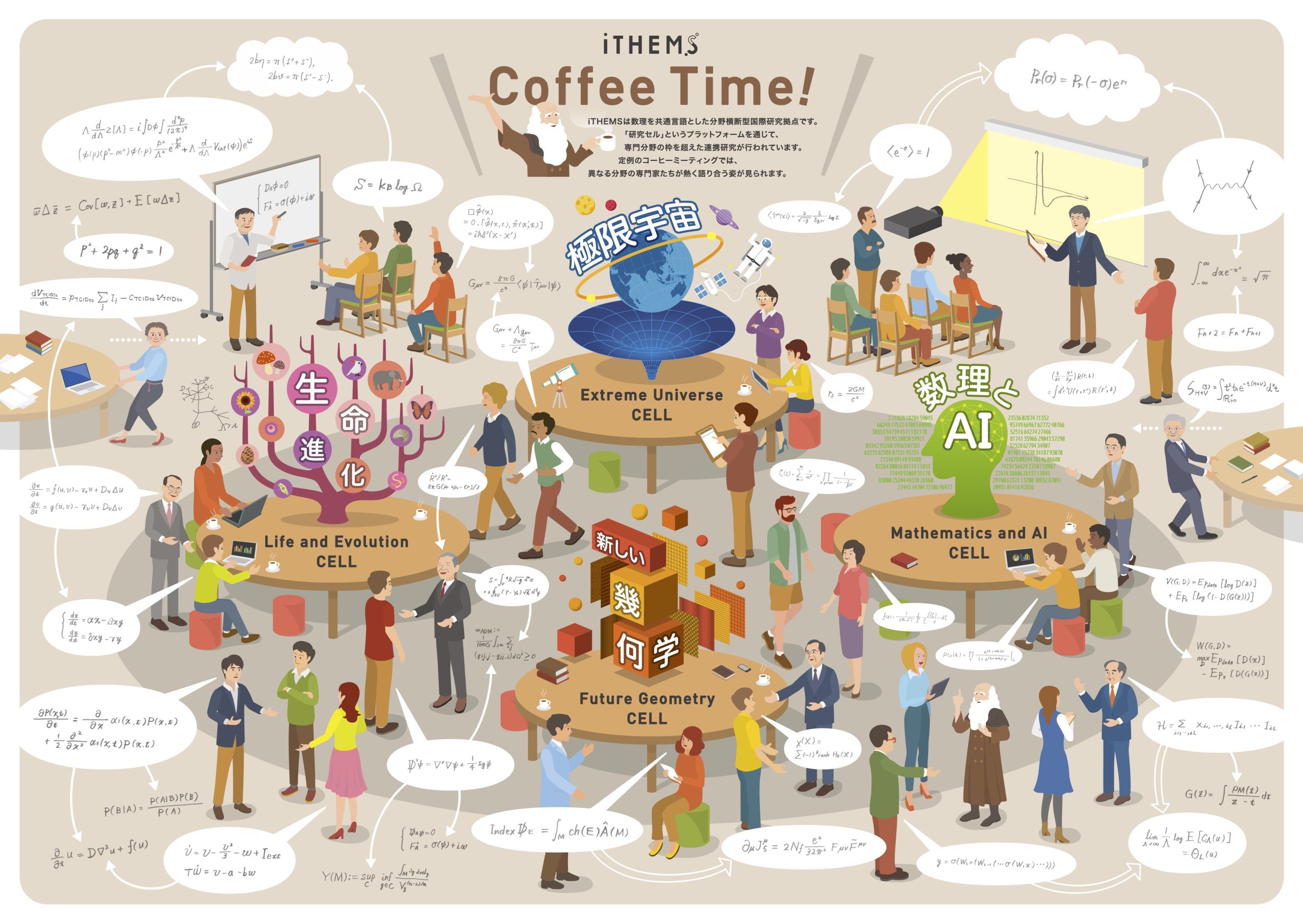
The Interdisciplinary Theoretical and Mathematical Sciences Program (iTHEMS) is a new international research center at RIKEN where researchers in theoretical science, mathematics, and computational science cross disciplinary boundaries to promote basic research. iTHEMS aims to elucidate the universe, materials, and life, and to solve fundamental problems in society using a cross-disciplinary approach centered on “mathematics”. Currently, iTHEMS has a program director, five deputy program directors, one coordinator, and about 50 full-time researchers (at various levels). Of these, nine are mathematicians. The iTHEMS web page outlines our research activities. We conduct cross-disciplinary research activities in four research cells and a growing number of working groups beyond the four. As for activities related to MfIP, we hold industry-academia collaboration lectures every other month. The lecture usually lasts 60 to 90 minutes, followed by a tea time, and the second half is lively with questions. The operation of iTHEMS is being carried out as part of RIKEN’s seven-year plan, and we hope that it will be maintained as a research center for the future.
The Institute of Statistical Mathematics, Research Organization of Information and Systems
10-3 Midori-cho, Tachikawa, Tokyo 190-8562, Japan
https://www.ism.ac.jp/index_e.html
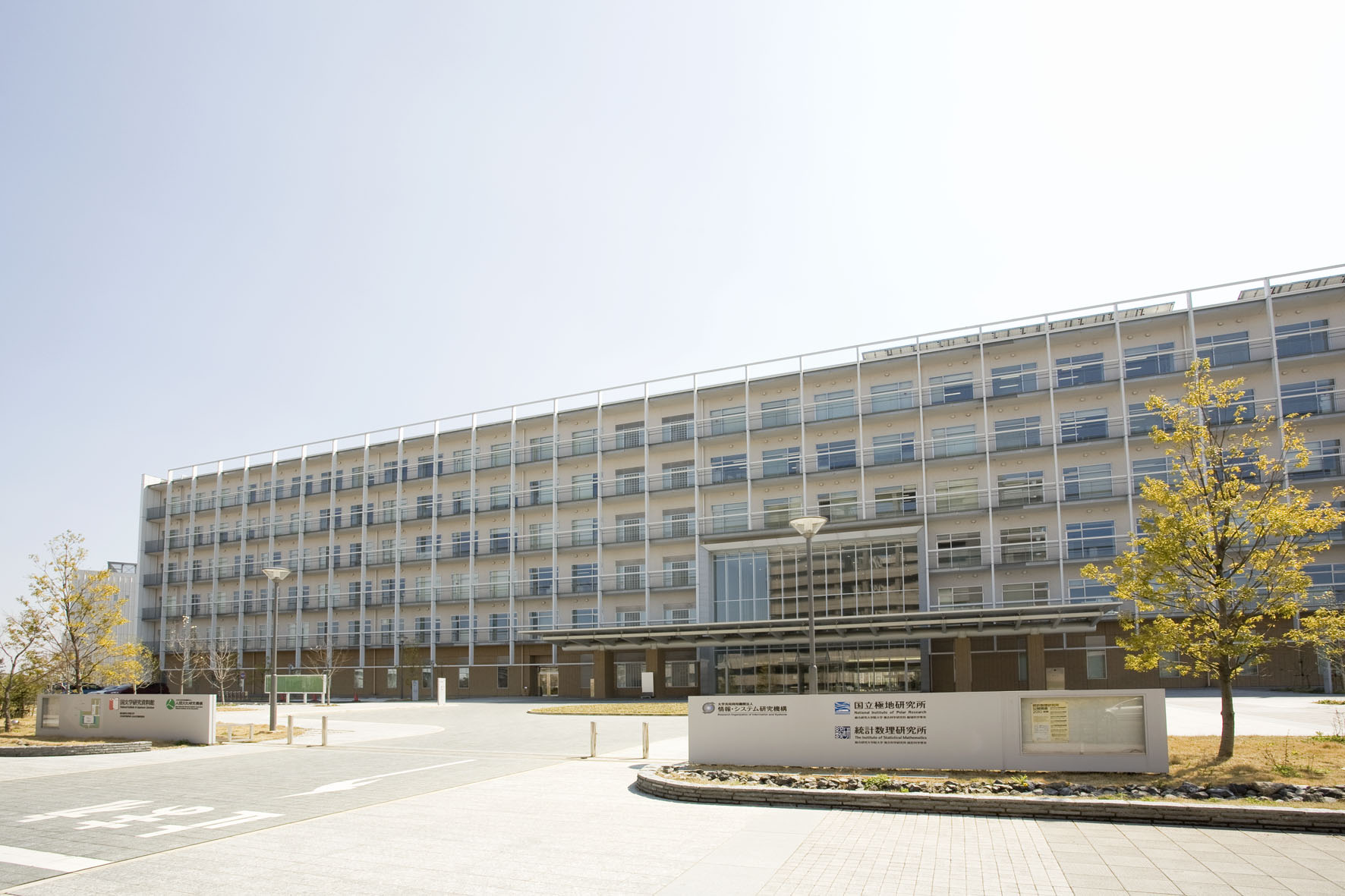
The Institute of Statistical Mathematics (ISM) was established in 1944 and has played a pioneering role in the development of statistical mathematical science as a central research institution. Throughout its history, ISM has consistently valued the exploration of methodologies that provide a cross-disciplinary foundation for how data is acquired, how it is interpreted, how it is modeled, and how it is connected to decision-making. ISM also promote joint use and provide a place for researchers both inside and outside the institute to interact, while also contributing to the multifaceted development of theory and application in statistical mathematical sciences. ISM will carry out research and education activities in order to produce research outcomes in statistical mathematical science that are beneficial to society, as well as to foster human resources who can promote and utilize fundamental academic research to further advances.
The Interdisciplinary Center for Mathematical Sciences
Komaba 3-8-1, Meguro-ku, Tokyo 153-8914, Japan
https://www.ms.u-tokyo.ac.jp/icms/
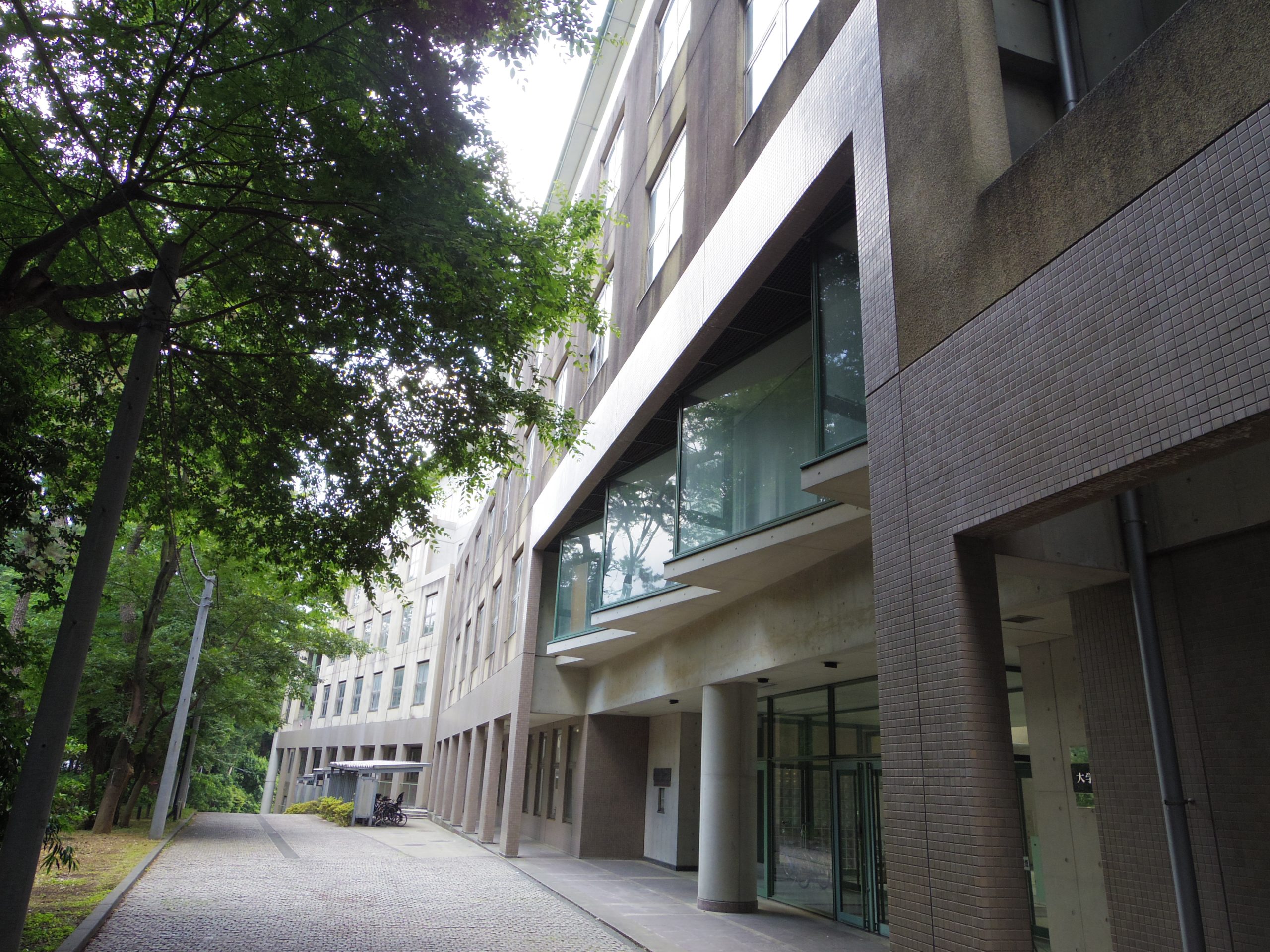
The Interdisciplinary Center for Mathematical Sciences (ICMS) aims to promote collaboration between mathematical sciences and various scientific and industrial fields, foster interdisciplinary research, and cultivate individuals capable of conducting cross-disciplinary research using mathematics. To achieve this goal, ICMS holds “Study Group Workshops for Solving Problems in Industry” to facilitate mathematical solutions to industrial challenges and promote collaborative research and cooperation with the industrial sector centered around mathematics. Through ICMS workshops, new problems that mathematical sciences should tackle in industry and various scientific fields are explored, and the process is publicly shared online to facilitate widespread information sharing. ICMS also supports activities of the World-leading Innovative Graduate Study for Frontiers of Mathematical Sciences and Physics (WINGS-FMSP), especially in “Mathematical Research on Real World Problems.” Fostering the development of graduate students and young researchers is also a crucial mission of the center through these activities. In December 2014, a career support office was established. The support office promotes career development in various fields by organizing activities such as mathematical career design seminars, various consultations related to employment, arrangements for internships and joint research with companies, and visits to research institutes. The office collaborates with other departments within the university to advance activities for career support on campus.
Research Core for Mathematical Sciences, University of Tsukuba
1-1-1 Tennodai, Tsukuba, Ibaraki 305-8571 Japan
https://rcms.math.tsukuba.ac.jp/
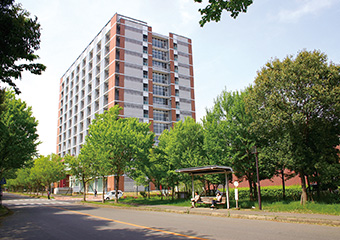
The University of Tsukuba Research Core for Mathematical Sciences (RCMS) was established in October 2017 as part of the Institute of Pure and Applied Sciences, University of Tsukuba. Our aim is cross-disciplinary fusion research based on mathematics, while also promoting international collaboration, academia-industry collaboration, and the development of young human resources. We have the following five divisions:
(1) Division of Symmetry and Mathematical Structure (Principal Investigator: Shigeki Akiyama)
We aim to mathematically describe the intrinsic symmetries, periodic structures, and nearly periodic structures of the natural world and mathematical structures, and to elucidate mathematical structures for predicting the temporal evolution of objects.
(2) Division of Geometric and Topological Analysis (Principal Investigator: Kazuhiro Kawamura)
We aim to analyze the shapes of various figures, objects, and artifacts in natural science and engineering from a geometric perspective and to elucidate the underlying mathematical structures.
(3) Division of Mathematical Modeling and Analysis (Principal Investigator: Yoshihiro Takeyama)
We aim to construct new analytical theories to precisely elucidate difficult-to-observe phenomena and objects using current technology.
(4) Division of High-Dimensional Statistical Analysis (Director of RCMS / Principal Investigator: Makoto Aoshima)
We aim to develop innovative cutting-edge technologies such as noise reduction, visualization, structural analysis, high-speed and highly accurate classification, and high-speed and highly accurate modeling of networks for high-dimensional data in a multitude of fields.
(5) Division of Mathematical Foundations and Applications of Artificial Intelligence (Director of the Office of Interdisciplinary Research, Planning and Coordination / Principal Investigator: Akira Terui)
Based on numerical analysis, symbolic computation, and mathematical logic, we aim to make new developments in the field of deep learning by making full use of techniques derived from mathematical theory.
RCMS promotes innovative collaboration between mathematics and various sciences/industry and we welcome international enquires.
Contact: Office of Interdisciplinary Research, Planning and Coordination
(rcms-kikaku@math.tsukuba.ac.jp)
Waseda Research Institute for Science and Engineering Institute for Mathematical Science Waseda University
3-4-1 Okubo, Shinjuku-ku, Tokyo, 169-8555 JAPAN
https://www.waseda.jp/fsci/wise/initiatives/math/
